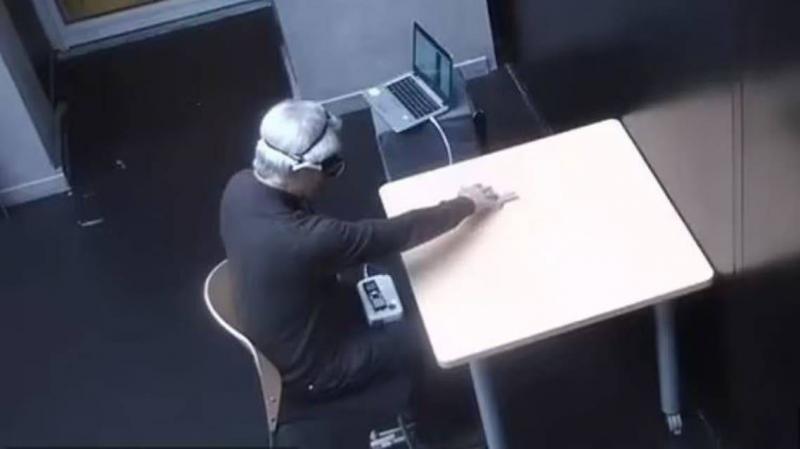Thanks to a new genetic treatment and special glasses, a French patient who lost his sight 40 years ago has begun to partially regain his vision, according to the British Daily Mail. The treatment worked by genetically modifying the cells in one of the patient's eyes to respond to light pulses transmitted through glasses equipped with cameras.
The cameras on the glasses translated the real-world view into photonic light pulses, allowing the patient to recognize, count, and locate objects in front of him. However, the restored vision is in black and white and lacks the ability to distinguish some details, such as reading a book or recognizing another person's face.
The 58-year-old French patient lost his sight due to Retinitis Pigmentosa (RP), a disease that gradually stops light-sensitive cells in the eye from functioning. Until now, the only approved treatment for RP cases was a form of gene replacement therapy known to work only in early stages of the disease. The research team stated that the gene therapy might be beneficial in restoring vision for patients blinded by RP, but more studies are needed to explore its effectiveness, and it is likely to be available for use within five years.
Dr. José-Alain Sahel from the Sorbonne University in Paris, who conducted the study in collaboration with several colleagues, noted that the patient "initially could not see anything with the system, which was clearly very frustrating. But then, spontaneously, he seemed very excited as he began to see white lines across the street."
The research team explained that this achievement came after two and a half months of training using the special glasses, which feature an internal light projector, with foundational research being in preparation for thirteen years.
Dr. Botond Roska, a co-researcher from the Institute of Molecular and Clinical Ophthalmology in Basel, mentioned that the approach taken in the study involves much lower risks than brain surgery and that another method is being explored to reverse blindness, which, unlike gene replacement therapy, can be used with people who have already lost their sight.
James Pinbridge, a retinal studies expert from London, who did not participate in the current study, stated that "this exciting new technology could help individuals with severe visual impairments." He added, "It seems that the intervention improves the ability to locate something visually," describing the study as "high quality" and "carefully conducted and controlled."
However, Professor Pinbridge noted that "the results are based on laboratory tests conducted on only one patient, which means there must be more work to see if the technology is expected to provide meaningful vision generally for other patients." He remarked that the most important point is that "blind patients suffering from various types of degenerative photoreceptor diseases and functional optic nerve damage will be eligible for treatment."




